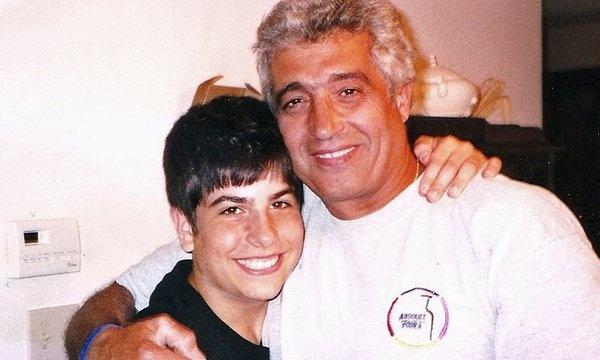

Michael's Story
Written by Avi Israel, father and parent advocate
Note: The opinions expressed in this blog post are solely those of the author.
To most people in this country, the opioid epidemic is just two words that don’t mean very much. To me, it’s a constant reminder of pain and struggle for survival.
On a cold December evening of 2010, my only son, Michael David Israel, walked into my bedroom and said, “Dad, can we talk?” I said “Of course, Mike.” I was glad he wanted to talk to me, because for the past six months my only boy was behaving very strangely.
I will never forget the next sentence. He said, “I have a problem. I’m addicted.” “Addicted to what?” I said. “To my pain pills.” he replied. At the time, I could not understand that a pill from a doctor could change your life forever. Michael struggled with his addiction, and our family struggled to understand what addiction was.
It was only six months from that night in December to the morning of June 4, 2011. Michael walked into my bedroom again, this time for the last time. After feelings of rejection and hopelessness about treatment, Michael locked the door, and shot himself. I kicked the door open and held my son as he took his last breath. I remember kneeling down next to Michael, hearing the rain coming down outside, and thinking that my son didn’t have to die! Six years later, it is still happening every day, hundreds of times a day.
Society does not view addiction as seriously as they should. Everyone still thinks addiction is a choice. It becomes a matter of survival, not a choice. Just like everyone else I viewed Michael’s addiction as “his choice to stop.” I was very wrong and I didn’t understand how strong of a hold opioids have on your brain.
After Michael’s death, we formed Save the Michaels of the World, Inc., a not-for-profit organization to help educate the public and raise awareness about addiction. We have been successful in passing the I-STOP laws in New York State to curb over-prescribing. We started an awareness campaign called “Painkillers Kill More than Pain.” We passed a law to mandate addiction education for physicians, and New York State insurance companies must now provide treatment without pre-qualification. In our small three-person office we see addiction struggle first-hand. We help people get into treatment and we make a point to educate their family about addiction and get them involved with the treatment process and support their loved one after treatment. We have had successes and we have seen some relapses. Our work is a start, but twenty years of over-prescribing and the easy availability of street drugs is still taking its toll on our people.



Understanding the Opioid Epidemic is a production of WNED PBS
With funding provided by BlueCross BlueShield Association and the Brain Research Foundation.